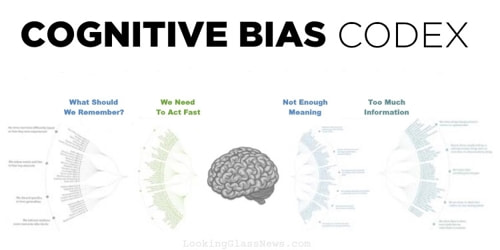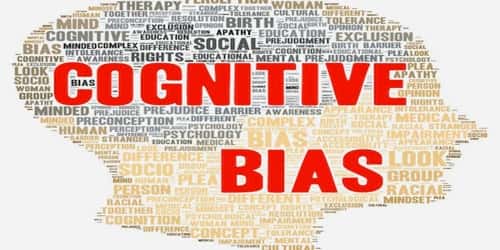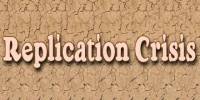About Cognitive Bias
Cognitive bias is a bad mental habit. It’s a way of thinking that might be very common and, on its surface, might even appear rational – but in fact, it gets in the way of logical thinking. It is a mistake in reasoning, evaluating, remembering, or another cognitive process, often occurring as a result of holding onto one’s preferences and beliefs regardless of contrary information. Cognitive biases may sometimes lead to perceptual distortion, inaccurate judgment, illogical interpretation, or what is broadly called irrationality.
Psychologists study cognitive biases as they relate to memory, reasoning, and decision-making. Many kinds of cognitive biases exist. For example, a confirmation bias is the tendency to seek only information that matches what one already believes.
Cognitive biases are closely related to logical fallacies, but cognitive biases exist in a mind whereas logical fallacies exist in an argument. One way to think of it would be that when you read a faulty argument, you may fall for its fallacies because your cognitive biases are clouding your vision.

The notion of cognitive biases was introduced by Amos Tversky and Daniel Kahneman in 1972 and grew out of their experience of people’s innumeracy, or inability to reason intuitively with the greater orders of magnitude. Tversky, Kahneman, and colleagues demonstrated several replicable ways in which human judgments and decisions differ from rational choice theory. Tversky and Kahneman explained human differences in judgment and decision making in terms of heuristics. Heuristics involve mental shortcuts which provide swift estimates about the possibility of uncertain occurrences. Heuristics are simple for the brain to compute but sometimes introduce “severe and systematic errors.”
There are hundreds of cognitive biases out there – way more than we could ever explore in a short article. Here we have chosen some of the types of ‘cognitive bias’ because they are either especially common or especially interesting.
- Anchoring effect – the tendency for the brain to rely too much on the first instance of information it received when making decisions later on.
- Availability bias – the tendency for the brain to conclude that a known instance is more representative of the whole that is actually the case.
- Bandwagon effect – the tendency for the brain to conclude that something must be desirable because other people desire it.
- Bias blind spot – the tendency for the brain to recognize another’s bias but not its own.
- Clustering illusion – the tendency for the brain to want to see a pattern in what is actually a random sequence of numbers or events.
- Confirmation bias – the tendency for the brain to value new information that supports existing ideas.
- Framing effect – the tendency of the brain to arrive at different conclusions when reviewing the same information depending upon how the information is presented.
- Group think – the tendency for the brain to place value on consensus.
- Negativity bias – the tendency for the brain to subconsciously place more significance on negative events than positive ones. This bias probably evolved as a survival technique. Assuming the worst of a situation that turns out not to be dangerous is much safer than not expecting danger that turns out to be present.
- Recency bias – the tendency for the brain to subconsciously place more value on the last information it received about a topic.
- Sunk cost effect – the tendency for the brain to continue investing in something that clearly isn’t working in order to avoid failure.
- Survivorship bias – the tendency for the brain to focus on positive outcomes in favor of negative ones. A related phenomenon is the ostrich effect, in which people metaphorically bury their heads in the sand to avoid bad news.
Cognitive biases develop for several reasons. For example, errors in memory can affect how you think about a particular event. This, in turn, influences how you think about similar events, which can lead to cognitive bias. It’s also thought that cognitive bias helps us process information more quickly. Cognitive biases can cause us to make inaccurate judgments, decisions, and interpretations. Although it’s impossible to completely avoid cognitive biases, it is possible to understand what they are so that we can look for them when they arise and adjust our judgments as needed.
Information Source:
















